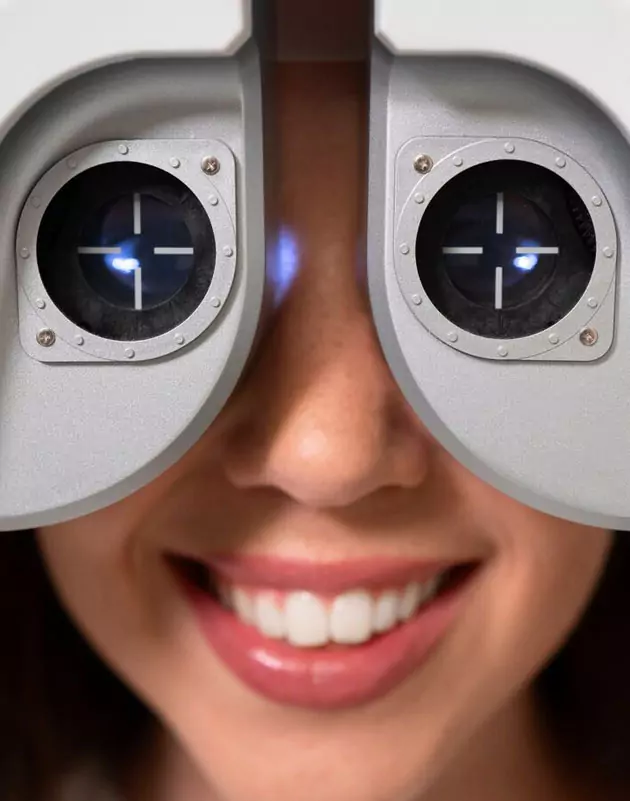Comprehensive eye exams use a series of advanced tests and evaluations to provide information about your vision and your eye health. The goal is to diagnose, treat orto send the patient to theappropriate specialist, if necessary.
A comprehensive exam begins with a review of your personal medical history, along with a review of any symptoms you may be having. Your eye pressure and peripheral vision will be checked. Pressure can provide an early indication of glaucoma.
A comprehensive exam requires dilation or the use of special equipment so that the doctor can see into the eye and evaluate the structure of the eye. The examalso includes:
-
Refractive Errors
Identifies conditions like nearsightedness, farsightedness, or astigmatism.
-
Visual Acuity Test
Measures how well a person can see at various distances.
-
Color Vision Test
Identifies color blindness or color vision deficiencies.
-
Ocular Motility
The doctor will check the movement of your eyes and how well they work together.
-
Amblyopia (Lazy Eye) Screening
Checks for the presence of a dominant eye, which could affect vision development.

Why is Your Exam so Important?
Early Detection of Eye Diseases
Your annual exam can help detect eye conditions early, often before symptoms are noticeable. For instance, diseases like glaucoma, macular degeneration, and diabetic retinopathy may not show symptoms until significant damage has occurred. Early identification increases the chances of successful treatment, reducing the risk of vision loss.
Prevention of Vision Impairment
Conditions like cataracts and refractive errors can be managed and even reversed if detected in their early stages. Treating conditions like amblyopia (lazy eye) is particularly crucial in children, as it can result in permanent vision impairment if not addressed early.
Improved Quality of Life
Uncorrected vision problems can significantly affect a person’s quality of life. From difficulty reading and driving to issues with balance and mobility, untreated vision conditions can hinder daily activities and lead to safety concerns. Early detection of vision issues helps people maintain their independence and perform routine tasks more effectively.
Link Between Vision and Overall Health
Regulareye exams can also uncover signs of broader health issues. For instance, abnormalities in the retina can reveal signs of systemic conditions such as high blood pressure, diabetes, and neurological disorders.
Academic Performance
Vision problems can directly affect your child’s academic performance.
Conclusion
Regular eye examsare a vital part of maintaining good eye health. If you or your family members haven’t had a recent exam, consider scheduling one with Casey Optical Too today. Early intervention is key to preserving and protecting your vision for years to come.
